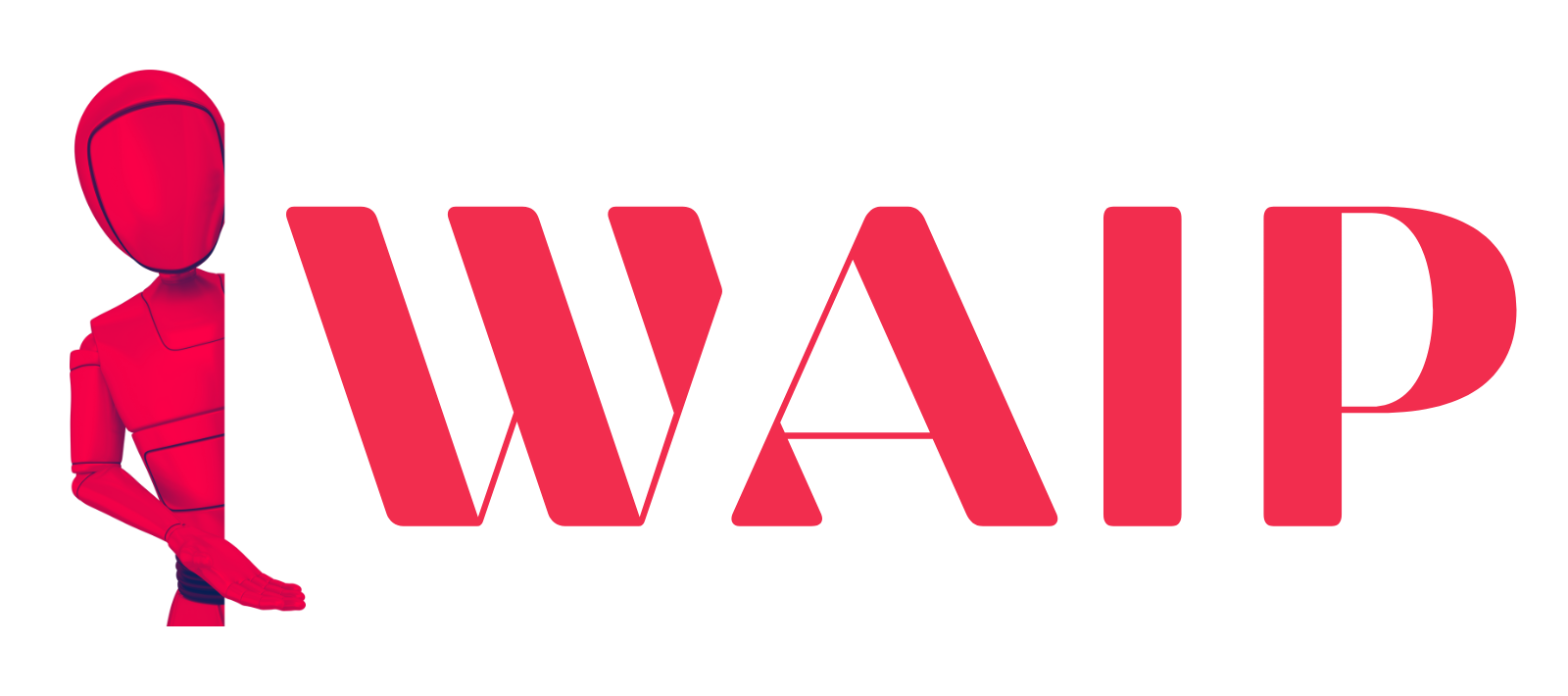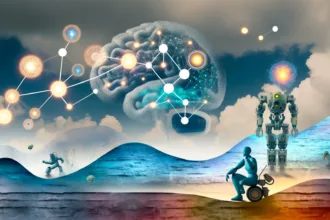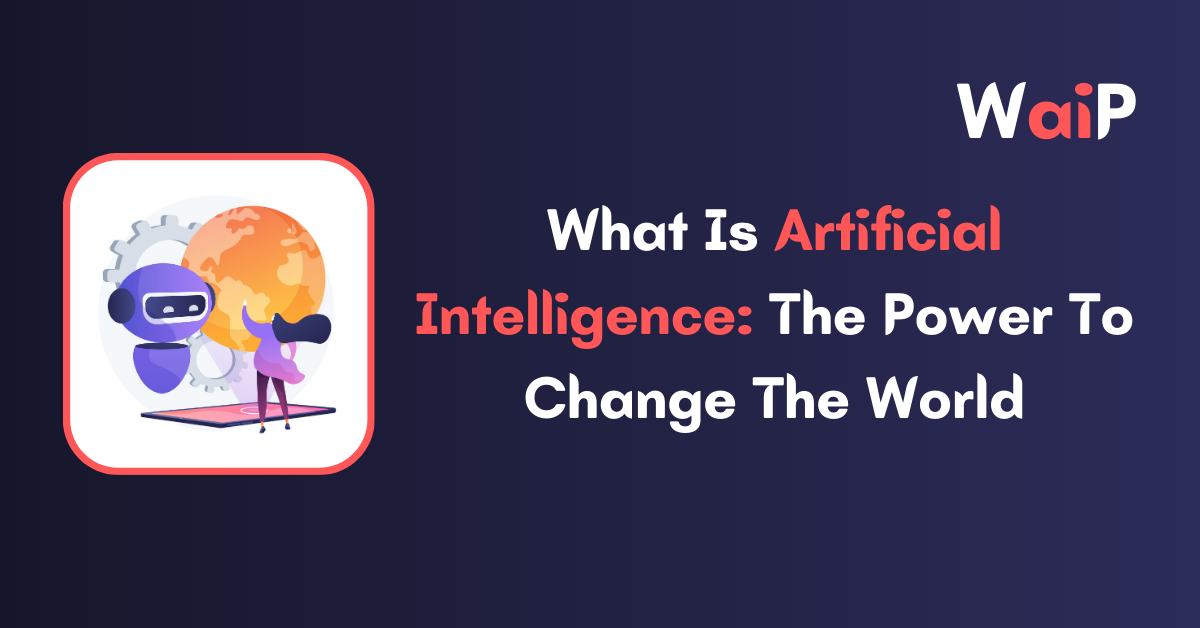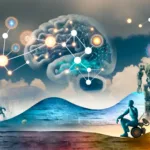Welcome to our exploration of Artificial Intelligence (AI), one of the most transformative technologies of our time. AI, at its core, is a field of computer science dedicated to creating machines that act intelligently.
It’s not just about robots, it’s about algorithms that can learn and make decisions, it’s about computer vision, natural language processing, and much more. It’s about machines performing tasks that, until recently, required human intelligence. As we delve deeper, we’ll uncover the magic behind AI, its potential, its applications, and its future.
What is Artificial Intelligence
Artificial Intelligence is an area in the world of computer science and tech. Its goal is to create smart machines that can do things that usually need human smarts. It’s about making computer systems that can copy how humans think and learn. This includes learning from experiences, solving problems, understanding languages, making decisions, and perceiving the world around them.
AI is a big field with many parts. It includes machine learning, natural language understanding, computer vision, expert systems, and robots. Machine learning is an important part of AI. It lets computers learn from data, find patterns, and make choices or guesses without being directly told how to do it.
The big dream of Artificial Intelligence is to make systems that can do tasks on their own, understand and reason like a human, and adjust to new situations. AI has made a lot of progress, but there’s still more work to do. The goal of making a machine that can think like a human, or even better, in a wide range of tasks, is still being worked on. This is often called artificial general intelligence, or AGI, and it’s a big challenge that researchers are trying to solve.
Brief History and Evolution of AI
The history of Artificial Intelligence (AI) started long ago. Its early ideas popped up in old stories and deep thoughts. But, AI as we know it began in the middle of the 20th century. Here are the main events in AI’s story:
- The Dartmouth Workshop (1956): At a meeting called the Dartmouth Conference, people like John McCarthy and Marvin Minsky gave the name “Artificial Intelligence”. They dreamed of making machines with smarts like humans.
- Early AI Research (1950s-1960s): In this time, people tried to build AI with sets of rules and expert systems. They made programs like Logic Theorist, General Problem Solver, and ELIZA.
- The AI Winter (1970s-1980s): This was a tough time for AI. Progress was slow, and people lost interest because AI wasn’t living up to their hopes.
- Expert Systems (1980s): During the AI winter, rule-based expert systems became popular. They acted like human experts and found use in medicine, finance, and engineering.
- Machine Learning Resurgence (1990s-2000s): The focus turned to machine learning. Things like neural networks and support vector machines became popular. Faster computers and big data helped a lot in areas like computer vision and language understanding.
- Big Data and Deep Learning (2010s): With more digital data and better computers, AI research grew again. Deep learning, a part of machine learning, made big steps forward in image and speech recognition and language understanding.
- AI in Everyday Life (Now): AI is a part of our daily lives now. Things like Siri and Alexa are common. AI is used in self-driving cars, healthcare, shopping suggestions, fraud detection, and targeted ads.
Understanding the Basics of AI
Artificial Intelligence is a field that lets machines learn from data without direct programming. AI can be broken down into a few simple parts:
- Machine Learning: This is a type of AI where machines can learn from data. There are four main types – supervised learning (machines are given labels with data), unsupervised learning (machines find patterns in data on their own), semi-supervised learning (a mix of both), and reinforcement learning (machines take actions for rewards).
- Deep Learning: This is a kind of machine learning that uses artificial neural networks to learn from data. It’s good at tasks like recognizing images, understanding language, and recognizing speech.
- Natural Language Processing: This lets machines understand and use human language.
- Computer Vision: This lets machines see and understand the world.
- Robotics: This is about making robots that can do tasks on their own.
AI is complex and changing fast, but these are the basics.
Current State of AI in 2023
In 2023, Artificial Intelligence, or AI, is changing quickly. Here’s a simple look at what’s happening:
- Big Language Models Rise: Big language models, or LLMs, are a type of AI that learns from lots of text and code. They can do things like write text, translate languages, and make content. In 2023, LLMs are growing fast.
- Deep Learning Growth: Deep learning, a type of machine learning, learns from data. It’s good at tasks like recognizing images and understanding language. In 2023, deep learning is being used more and more.
- AI in Workplaces: More workplaces are using AI to automate tasks and make better decisions. In 2023, more companies are turning to AI.
- Ethical AI: As AI gets stronger, it’s important to use it in a good and fair way. In 2023, there’s more focus on ethical AI.
AI is changing fast and having a big effect on our world. It’s hard to say what will happen next, but AI is clearly very important.
Here are Some Ways AI is being Used in 2023
- Self-Driving Cars: Companies like Waymo, Uber, and Tesla are testing self-driving cars on the road.
- Virtual Assistants: Virtual assistants like Alexa and Siri are getting more popular. They use AI to understand and answer our questions.
- Medical Diagnosis: AI is helping to improve how we diagnose diseases. It can look at medical images and find potential diseases.
- Fraud Detection: AI is being used to find fraud in areas like finance and retail. It can look at financial transactions and find potential fraud.
- Mobile Games: AI is being used in mobile games to create dynamic and personalized experiences, balance multiplayer games, optimize revenue, test games, and generate content.
These are just some of the ways AI is being used in 2023. AI is a powerful tool that can change many parts of our lives. As AI keeps growing, we need to make sure it’s used in a good and fair way.
Key AI Developments Since 2021
Artificial Intelligence has grown a lot since 2021. Here are some of the big changes:
- Big Steps in AI: In 2021, there were big changes in AI, especially in natural language processing (NLP) and computer vision. The GPT-4 language model, which can write like a human, was released. Also, self-driving cars made by companies like Waymo and Uber have improved.
- The Impact of GPT-4 and Other Models: GPT-4 is a big language model made by OpenAI. It’s one of the strongest language models ever, and it’s changing how we use computers. It’s being used for things like chatbots and writing text. Other models, like DALL-E 2 and AlphaFold, are showing us new ways to use AI.
- New AI Products and Services: In 2021, some big AI products and services were launched. Google launched a language model called LaMDA, and Amazon launched a facial recognition service called Recognition.
AI is changing fast, and it will be exciting to see what happens next. These are just some of the big changes in AI since 2021.
The Intersection of AI and Ethics in 2023
Artificial Intelligence is changing a lot of things in 2023. But with these changes come questions about ethics.
AI has a big effect on society and privacy. For example, it’s used to watch and track people, which can be a problem for privacy. Also, AI is used to make decisions that can change people’s lives, like if they can get a loan or job. This can raise concerns about fairness and discrimination.
AI can be biased. This means if the data AI learns from is biased, the AI can also be biased. This can lead to unfair treatment of certain groups. To fix this, we can use more diverse data sets and techniques to make the data fair.
AI is used to make big decisions, and this brings up the question of responsibility. If an Artificial Intelligence makes a bad decision, who is to blame? The company who made the AI? The person who used the AI? This is a difficult question.
There are also other ethical worries about Artificial Intelligence. For example, AI could be used for military purposes or could lead to many people losing their jobs. Also, AI can be very complex, making it hard to understand how it makes decisions.
These are some of the ethical issues we need to think about as Artificial Intelligence grows. It’s important that we talk about these issues and make sure AI is used for good.
The Future of AI Beyond 2023
In the coming years, Artificial Intelligence is set to become even more powerful. It will learn and adapt more easily and will do complex tasks, like translating languages or driving cars. AI will be used in more places, like healthcare, education, and manufacturing.
Artificial Intelligence will also change society in big ways. For example, it might help us solve big problems like climate change and poverty.
But AI has challenges too. Bias in AI could lead to unfair treatment of some people. As AI gets stronger, ethical issues become more important. For instance, AI could be used to create weapons. And AI might take over many jobs, which could lead to unemployment.
We are also seeing new technology in AI. This includes artificial general intelligence, or AGI, which would let AI do any job a human can do. Quantum computing could solve tough problems in AI. And neuromorphic computing, which is like the human brain, could make AI systems more efficient.
These are just some predictions for AI. No one knows exactly what will happen, but AI is sure to change the world.
Conclusion
As we’ve journeyed through the realm of Artificial Intelligence, we’ve seen its power, potential, and the pivotal role it plays in various fields. From healthcare to finance, from autonomous vehicles to virtual assistants, AI is reshaping our world.
The future of Artificial Intelligence is promising yet shrouded in uncertainty, filled with immense possibilities and crucial challenges. It’s clear that the key to harnessing AI’s potential responsibly lies in understanding its intricacies and advocating for ethical standards. As we move forward, let’s do so with a sense of curiosity, responsibility, and an appreciation for the incredible capabilities of AI.

![Best Mobile Games Your Should Try in 2024 [Trending Now] 2 Best Mobile Games](https://wideaiprompts.com/wp-content/uploads/2024/03/Best-Mobile-Games-330x220.webp)



![Best Mobile Games Your Should Try in 2024 [Trending Now] 9 Best Mobile Games](https://wideaiprompts.com/wp-content/uploads/2024/03/Best-Mobile-Games-150x150.webp)


